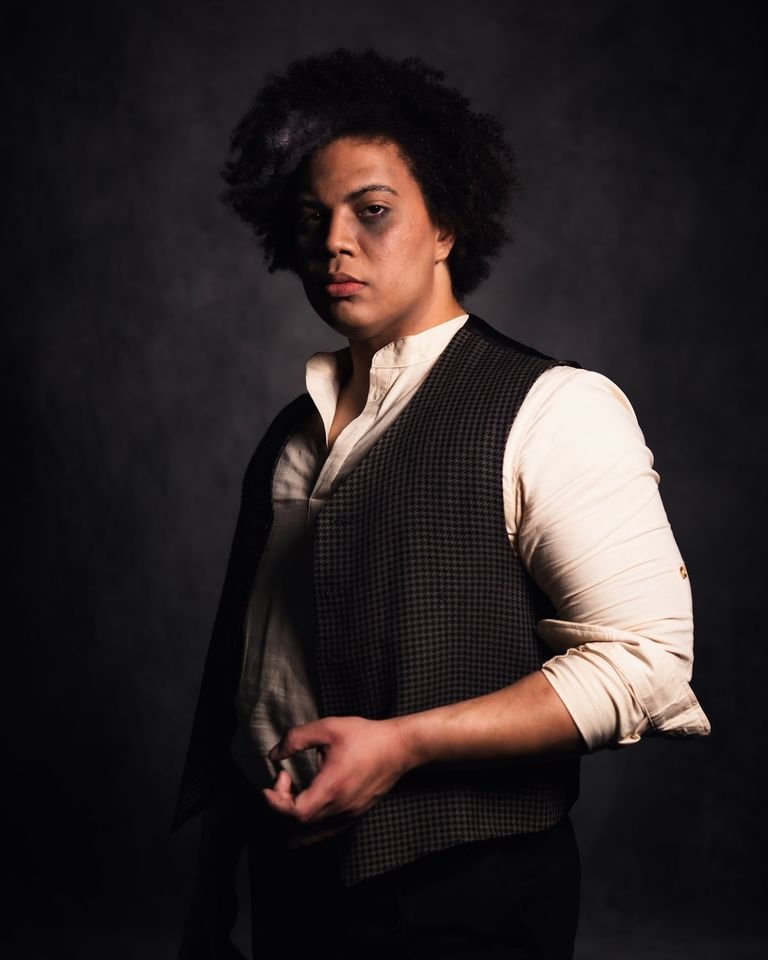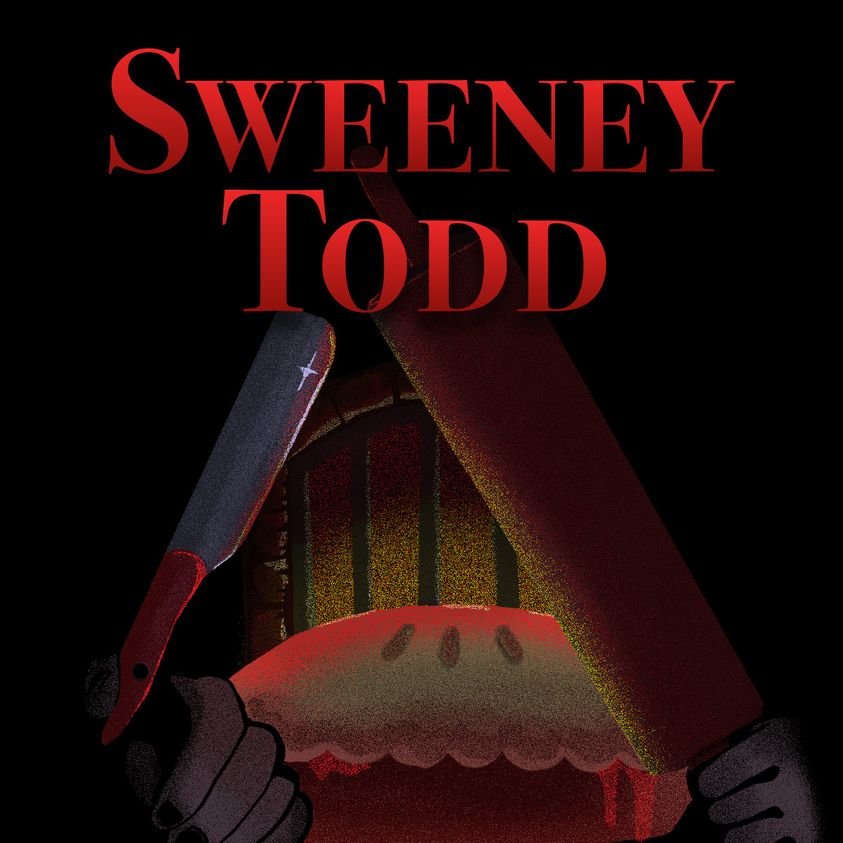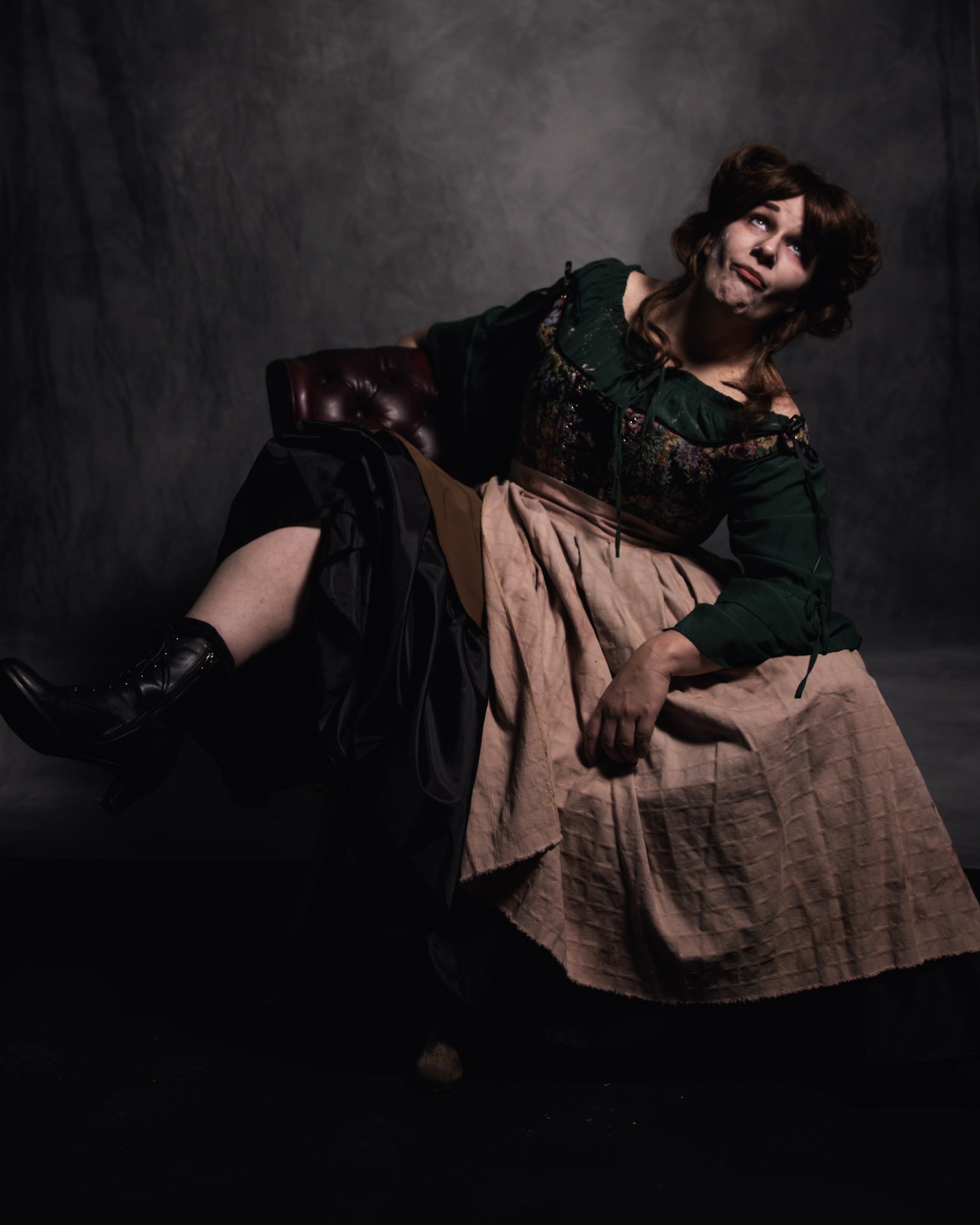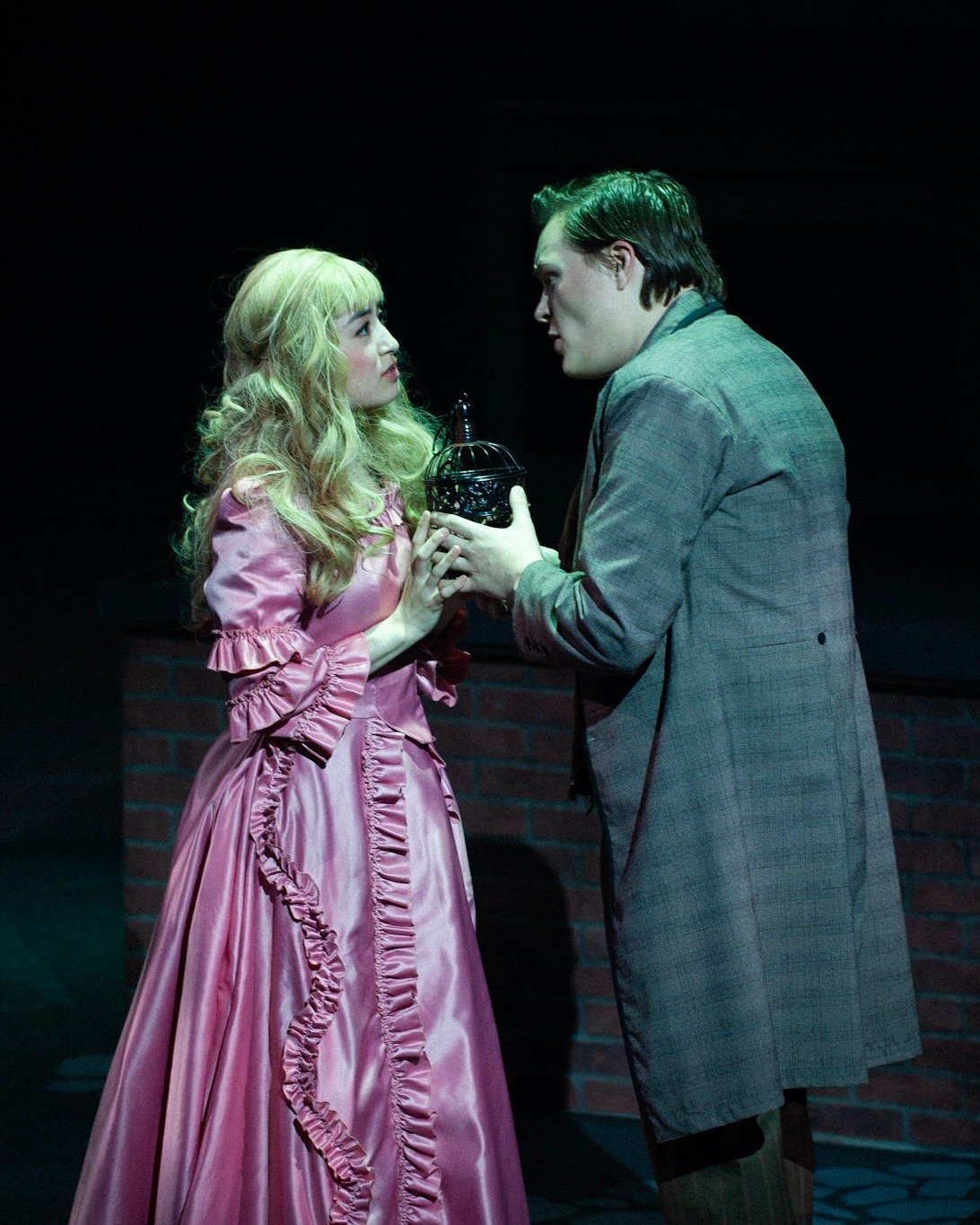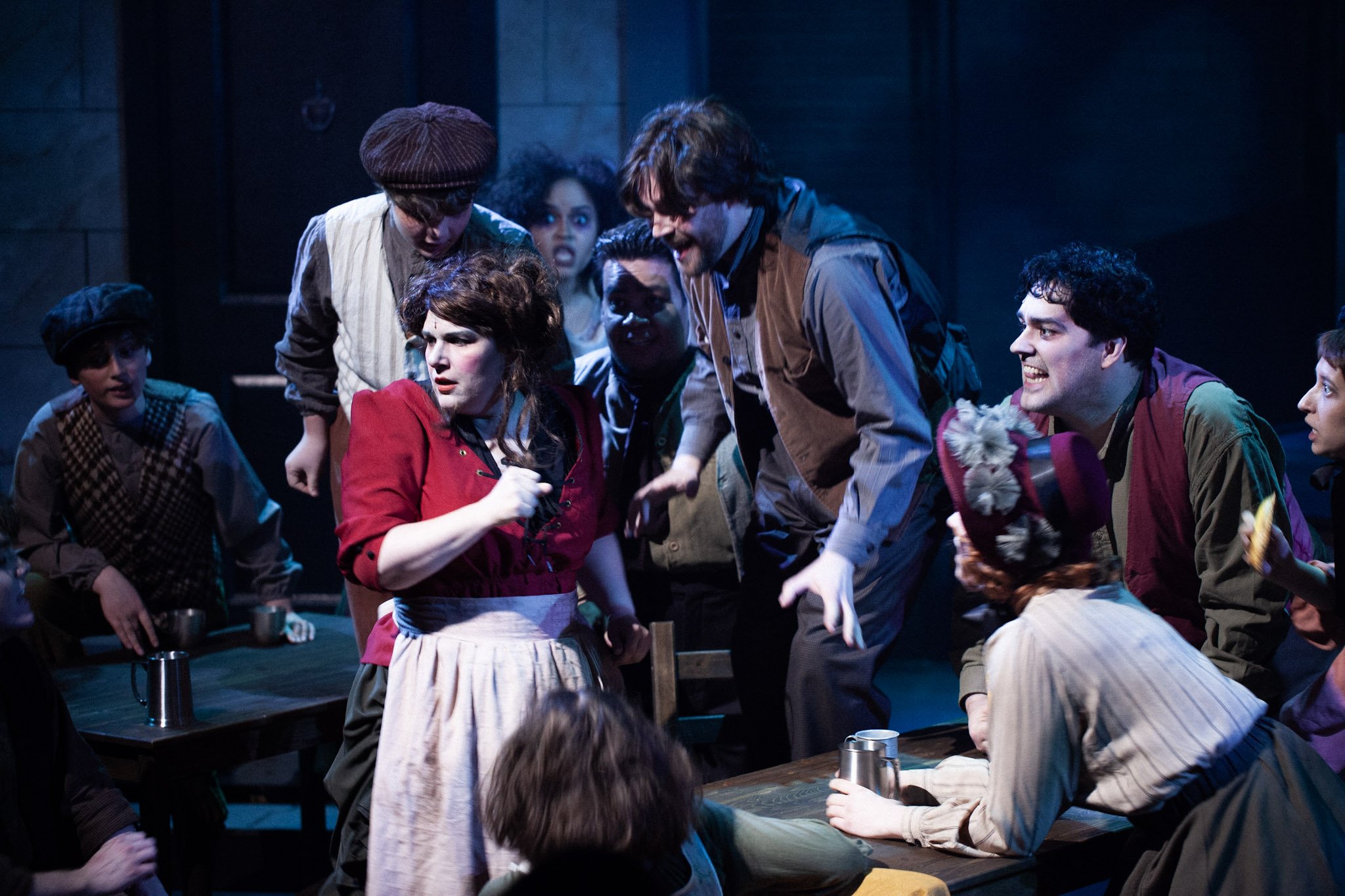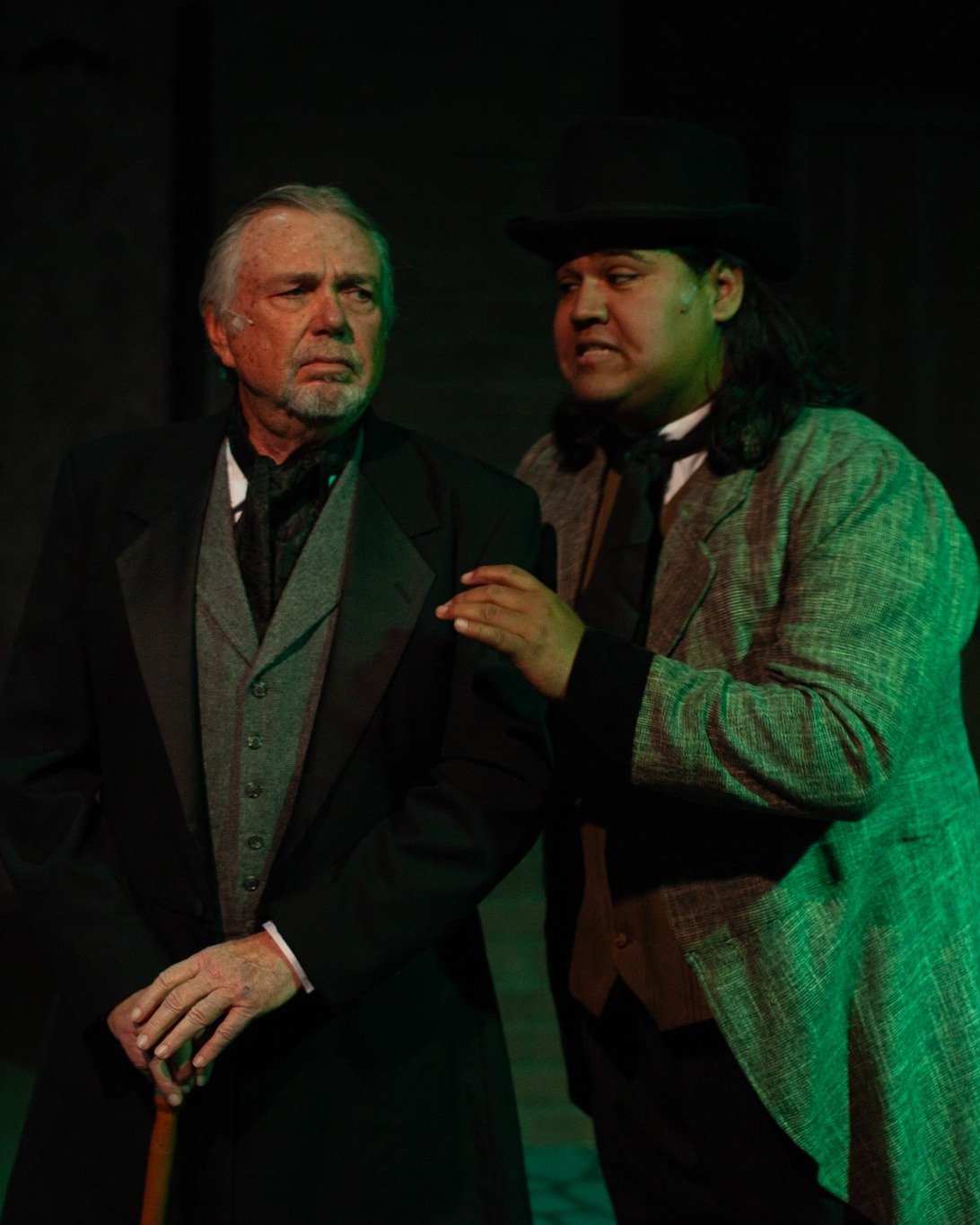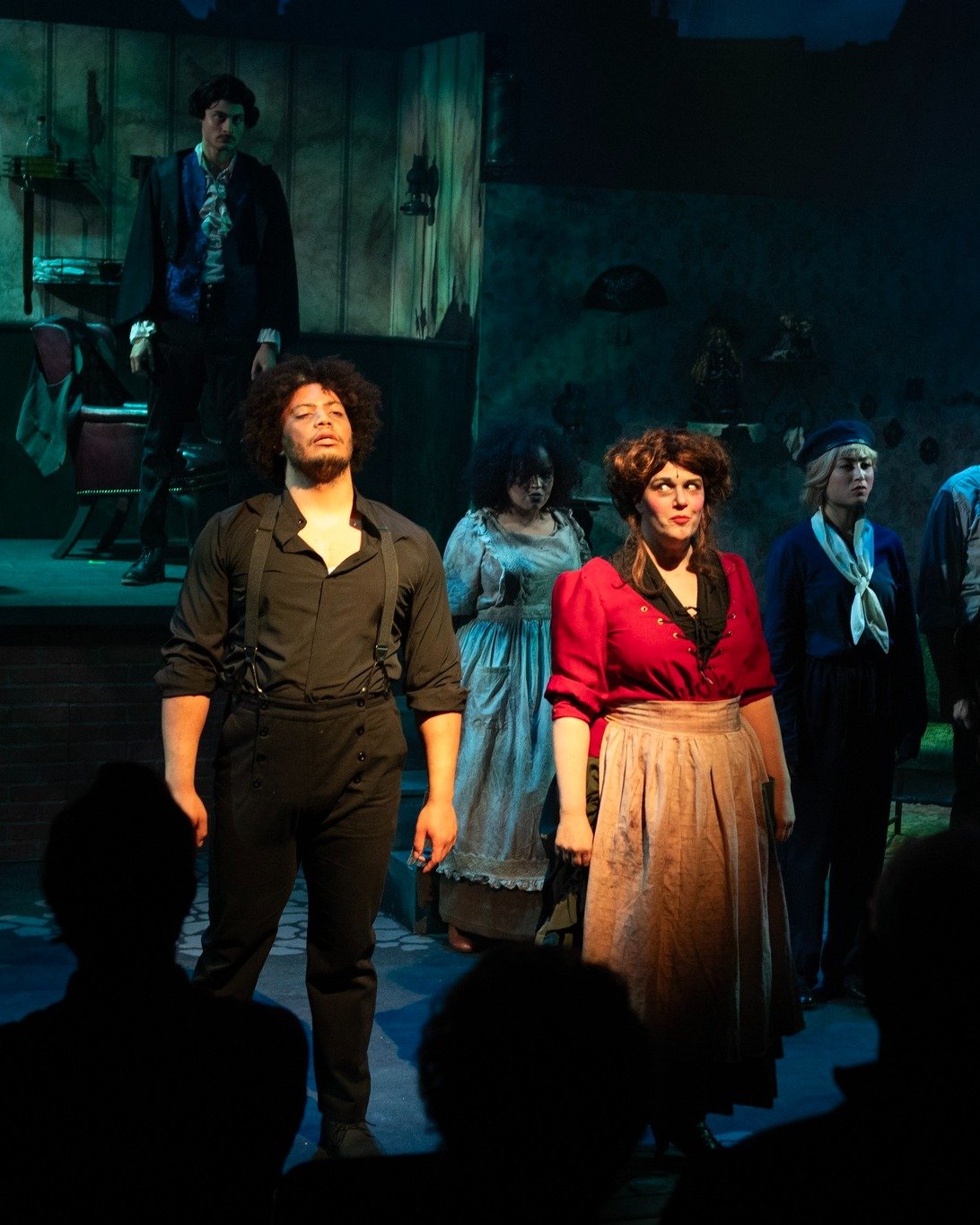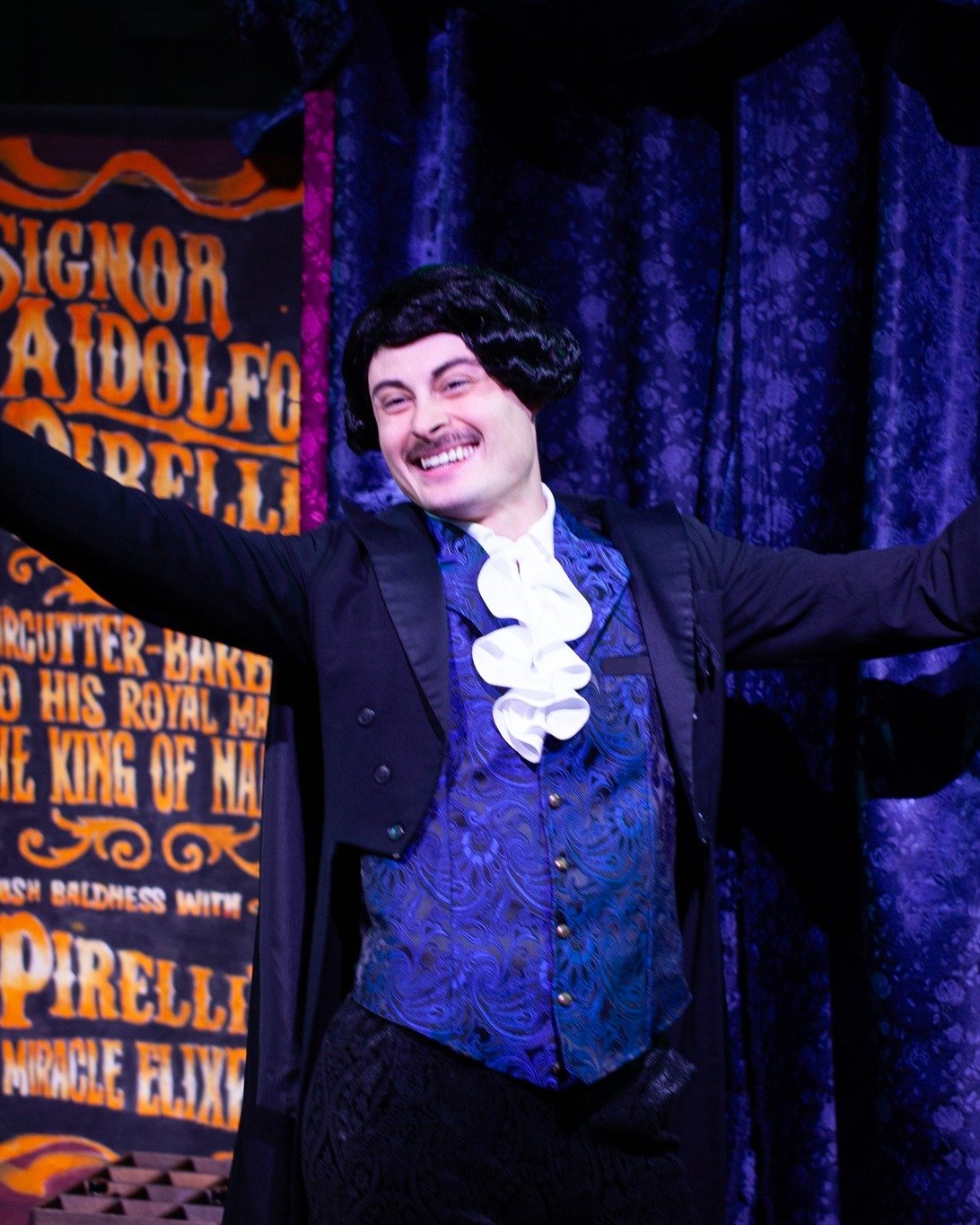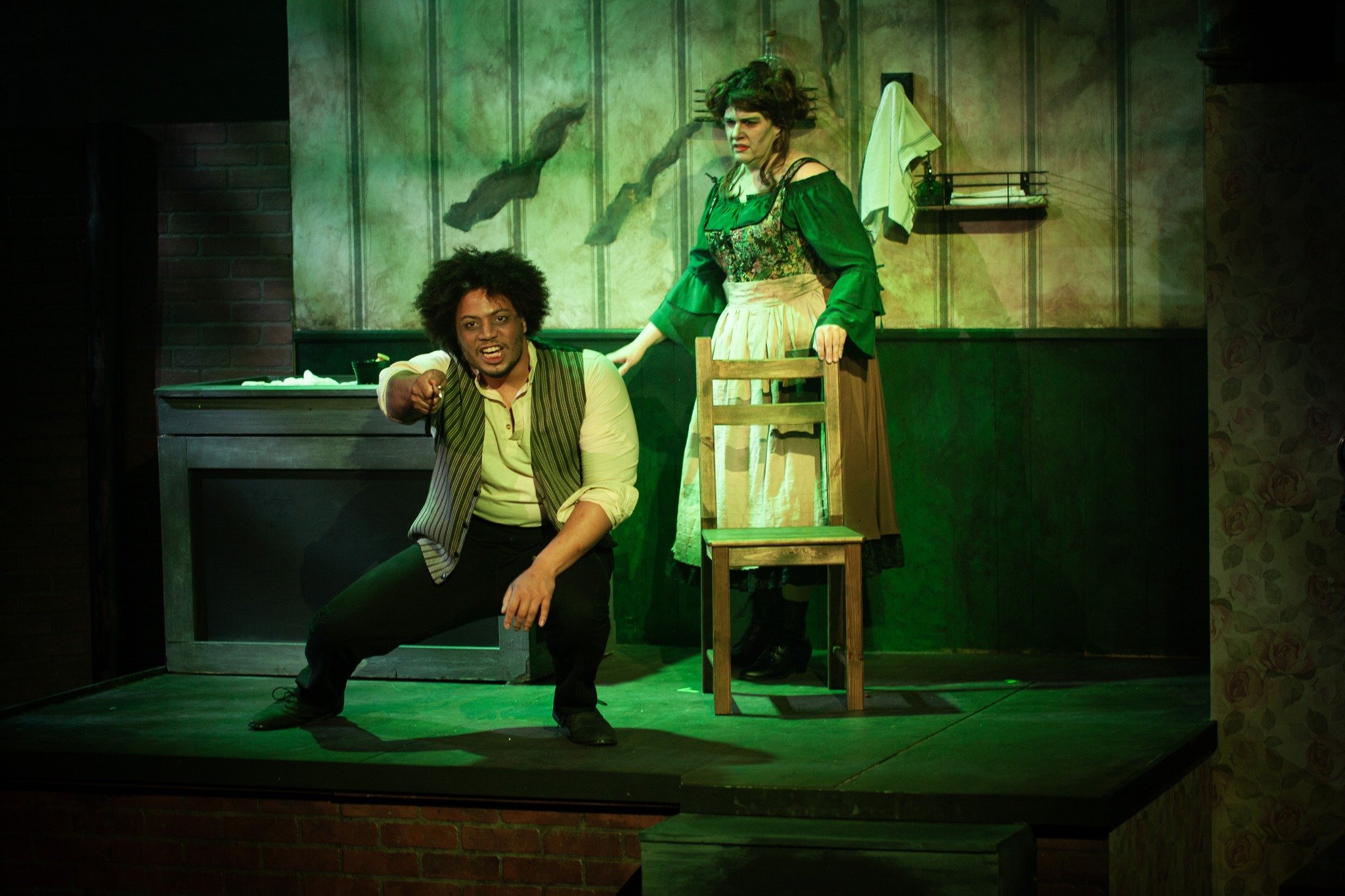‘Sweeney Todd’ @ Lyric Stage (Design District)
Photos by Paris Marie Productions
—Wayne Lee Gay
It's hard to know where to begin when commenting on a production so nearly perfect as Lyric Stage's current exploration of Steven Sondheim's Sweeney Todd: The Demon Barber of Fleet Street, which first appeared on Broadway in 1979.
But first of all, the show itself. Is Sweeney Todd Sondheim's greatest masterpiece? Possibly, though there's plenty of competition from the rest of the Sondheim canon. Certainly, while watching this production by Lyric Stage, I saw plenty of reason for putting Sweeney Todd at or near the top of the list. The mere act of making an appealing Broadway musical about a psychopathic killer is in itself a creative tour-de-force. But joined with this radically innovative premise, clichés and conventions abound: a love-lorn young couple, a powerful evil lecher, an escaped convict—as well as that ancient escape hatch for playwrights, a Greek chorus to comment upon and advance the action.
Indeed, though the title character does the killing, the crowd—and by extension, the audience—participates unwittingly in the rampant consumerism-cum-cannibalism induced by the psychopath Sweeney Todd. That was a nice metaphor for American culture when the show debuted in 1979, and it's even more relevant today, in a society even more awash in cost-be-damned consumerism. (I attended a production a few years ago at which the concession stand actually sold hot fresh meat pies at intermission, eagerly and laughingly bought up by audience members.)
As a composer of Broadway musicals, Sondheim is one of the few whose name can be mentioned in the same breath with Gershwin, Porter, Weill, and Bernstein. Unforgettable moments in the non-stop score include the spookily ironic "Pretty Women" and the hilariously evil "A Little Priest," as well as generous allusions to the apocalyptic Roman Catholic "Dies irae” chant, and spoofs of English ballad and music-hall traditions.
Lyric Stage has a long history of presenting Broadway musicals with traditional, original orchestral accompaniment. In this case, the company reduces the orchestration to a chamber ensemble of six musicians, placed behind the scenery on the small stage in the intimate confines of the Lyric Stage Studio, a relatively new addition to the company's venues. Hans Grim conducts insightfully (and to the audience, invisibly), while a closed-circuit video screen placed at the back of the audience enables perfect coordination with the cast of singers onstage. (The unseen musicians are: Hans Grim, keys; Min Ishii, violin; Susan Ishii, flute/clarinet; Minerva Davis, trumpet; Ray Grimm, tuba; and Kirstyn Norris, percussion.)
In the title role, Jonah Munroe brings a lush lyric baritone voice matched by his superb, multi-layered realization of the character—as complex and demanding as any role in the history of Broadway. Who would have thought, back in 1979 when the show was created, that audiences could at least empathize with, if not love, a mass murderer?
Mary Gilbreath Grim provides a worthy counterpart as Todd's companion in crime, Mrs. Lovett, likewise enlivening the human aspects of this cheerily willing accomplice. Cameron Vargas and Bella Zambrano bring superbly fine voices to the roles of the romantic young lovers; Evan Faris, Anthony Ortega, and Ryan Michael Friedman are appropriately oily in the one-dimensional roles of Judge Turpin, the Beadle, and Adolfo Pirelli, respectively.
Both Ethan Rodriguez-Mullins as the innocent dupe Tobias and Sarah Powell as the Beggar Woman find amazing range in their roles. The small ensemble of townspeople (doubling as insane asylum inmates and at times providing commentary) move with wonderful energy under director-choreographer Michael Serrecchia, who uncovers and underlines every clever nuance in Sondheim's verbal gold mine. (Serrecchia is, incidentally, Broadway aristocracy of the first rank, having been a cast member in the original production of A Chorus Line.)
Costume designer Breianna Bairrington delightfully characterizes and caricatures the urban mob of Victorian London—and all move with convincing grace (or appropriate lack thereof) across production designer Scott Guenther's wonderfully ragged and efficient set.
Lyric Stage, an essential component of the cultural scene in Dallas, thus brings us another enthralling—and musically powerful—realization of one of the masterpieces of American music and American drama.
WHEN: March 15-April 7, 2024
WHERE: Lyric Stage Studio, 1170 Quaker Street (Design District), Dallas
WEB: lyricstage.org
